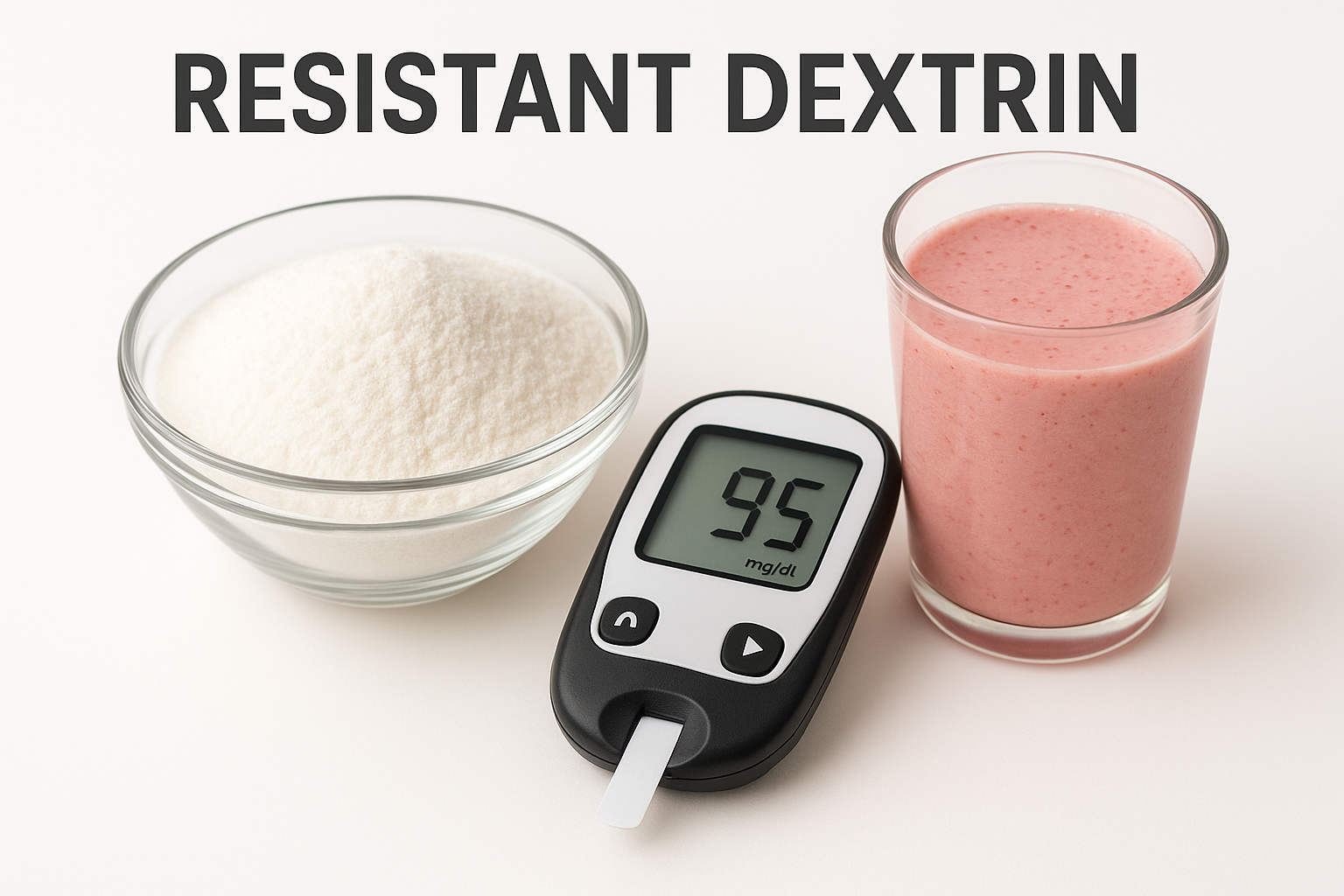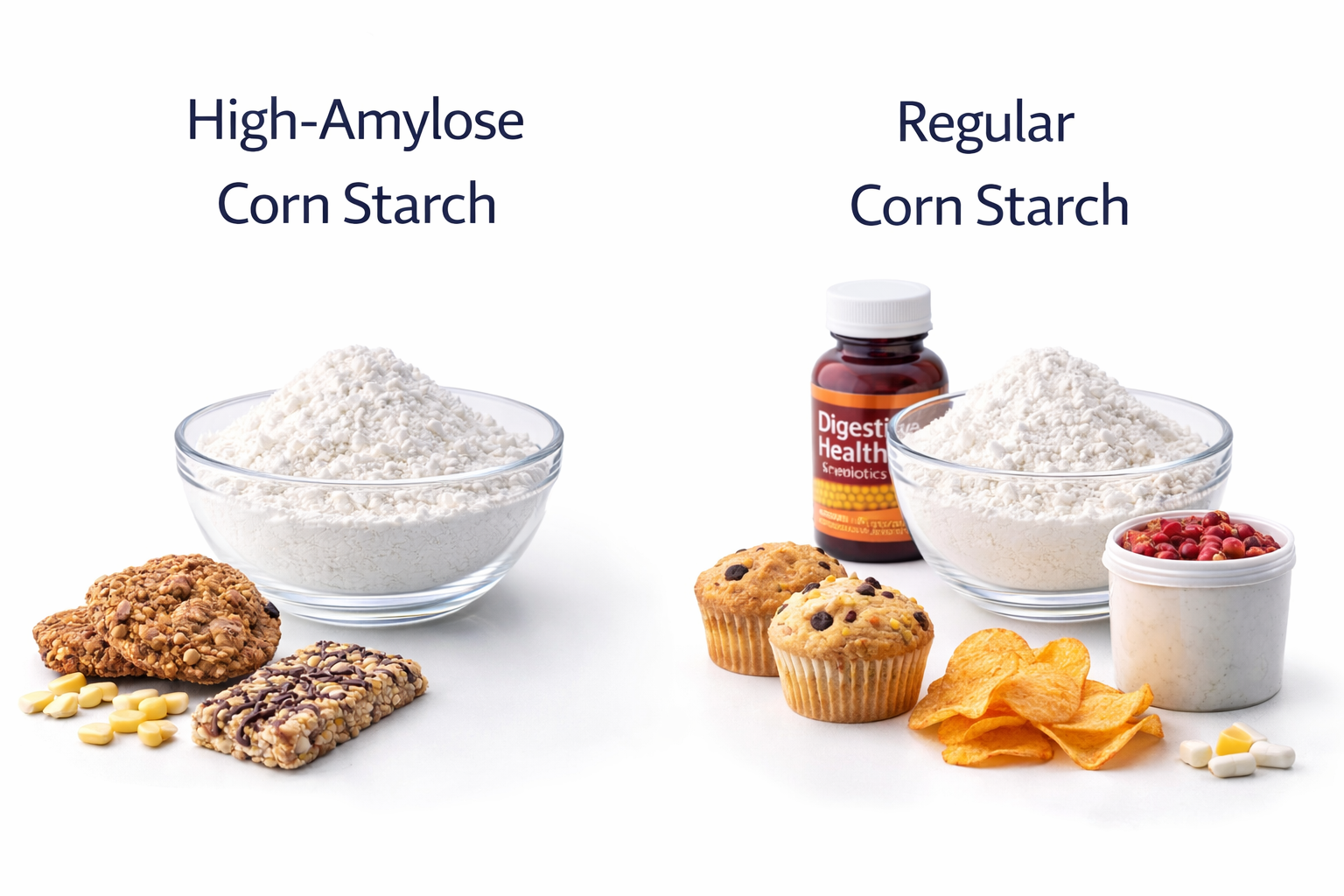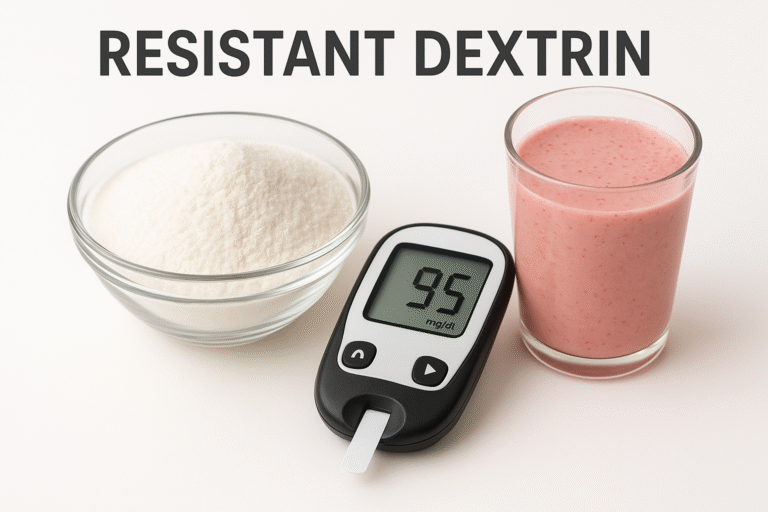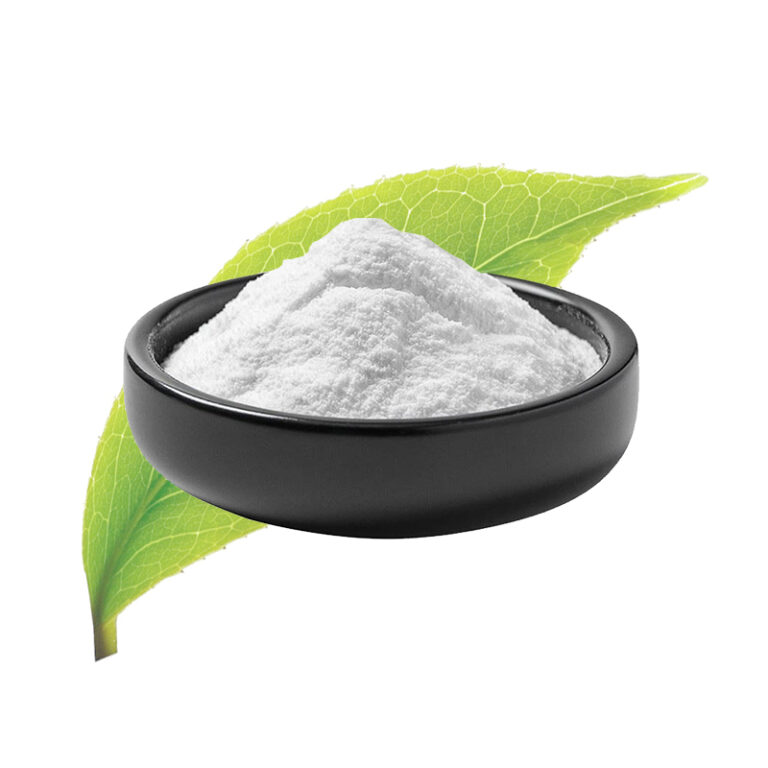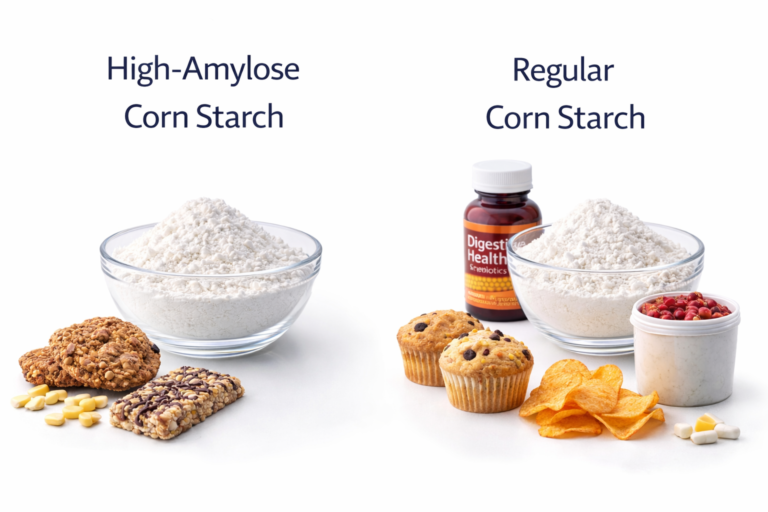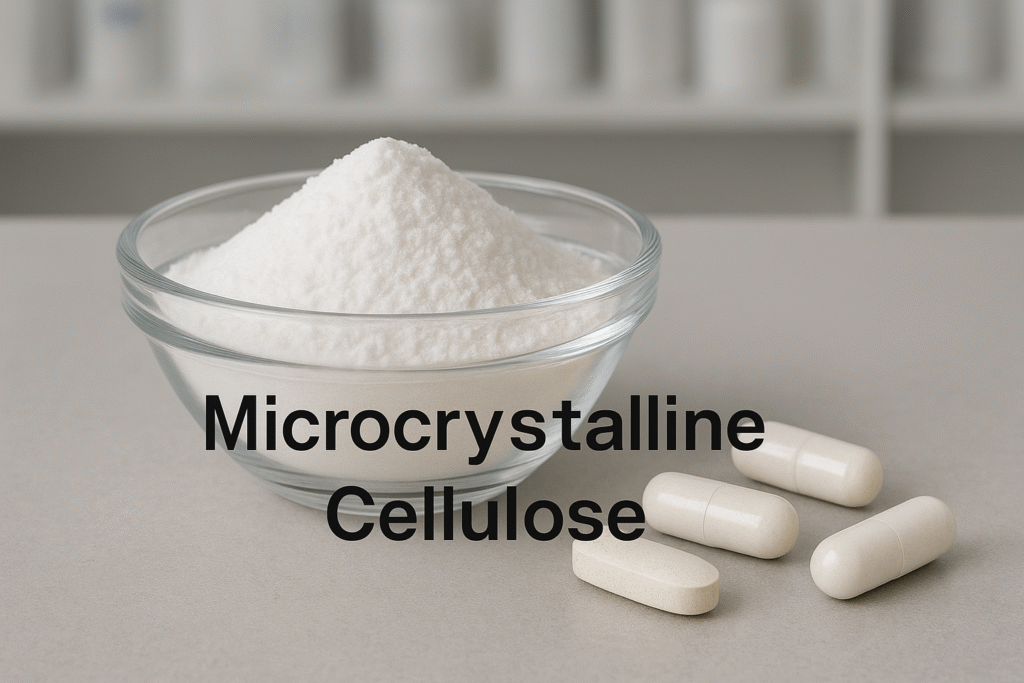
Many brands struggle when choosing safe, stable, and reliable ingredients for dietary supplements. This challenge leads to delays in product development, higher production risks, and weak market performance. The stress grows when customers demand clean labels, better textures, and high stability. These demands often push companies to search for ingredients that can support quality and efficiency at the same time.
U want an ingredient that improves flow, protects actives, supports tablet strength, and stays safe for daily use. U also want something that fits modern consumer trends without adding extra cost.
Microcrystalline cellulose gives U a simple answer. It helps U solve production problems, stabilize formulas, and improve customer trust. This guide will help U see how MCC works, why it is trusted, and how U can use it to strengthen your supplement line.
Microcrystalline cellulose is a plant-based functional excipient used to support tablet strength, improve powder flow, and stabilize dietary supplement formulas. It acts as a natural binder, filler, and disintegrant, which helps U produce tablets and capsules with consistent hardness, smooth compression, and clean-label appeal. Brands use MCC because it offers excellent stability, strong performance in high-speed manufacturing, and wide acceptance in global regulations. MCC benefits also include better texture, improved uniformity, and support for natural and allergen-free supplement claims.
Now that U understand the basic role of MCC, U can explore deeper insights that help U apply it with confidence. The sections below will guide U step by step, so U can choose the right grade, improve production, and meet customer needs.
1. Why Is Microcrystalline Cellulose Used in Supplements?
MCC plays a central role in supplement manufacturing because it helps U solve common production issues. Many powders do not flow well or compress well. This leads to tablet defects, weight changes, and active ingredient separation. MCC gives U a way to manage these issues because it offers good flow and strong binding. The ingredient helps U keep the product stable from start to finish. This stability is important for supplement brands that want consistent quality across all batches. The natural origin of MCC also makes it easy for brands to use it in clean-label formulas. This gives U a complete solution when U want both performance and natural positioning.
MCC is used in supplements because it improves flow, binds tablets, stabilizes formulas, and supports clean-label claims.
To understand why MCC is widely used, U can break down its function into several core roles. Each role helps your production team reduce errors and improve efficiency.
### Key Functions of MCC
| Function | What It Does | Why It Helps U |
|---|---|---|
| Binder | Holds tablet ingredients together | Strong tablet hardness |
| Filler | Adds volume to small-dose formulas | Stable weight and density |
| Flow Agent | Improves powder movement | Reduces production delays |
| Disintegrant | Helps tablets break down in the body | Better nutrient absorption |
These functions show that MCC works at every stage, from production to consumer use. It gives your operation more control, especially when U produce tablets with herbal extracts or sensitive actives.
- MCC supports high-speed tablet compression without losing stability.
- MCC helps maintain uniformity across large production batches.
2. What Makes MCC a Clean and Stable Ingredient?
Many brands want excipients that support clean labels. Consumers look for simple formulas without artificial additives. MCC fits these demands because it comes from natural cellulose. It does not contain allergens, gluten, or GMO ingredients. This makes it safe for a wide range of products. MCC is also chemically stable. It does not react with active ingredients and holds its structure over time. This stability reduces the risk of product degradation during storage or transport.
MCC is clean, natural, stable, and safe for long-term use in supplements.
[Featured Image Suggestion]
A white bowl of MCC powder on a clean natural wooden background with a “plant-based” icon.
The stability and clean profile of MCC make it different from many other excipients. U can break its strengths into two main areas: natural origin and chemical behavior.
### Clean-Label Characteristics
| Attribute | Explanation |
|---|---|
| Plant-derived | Comes from purified cellulose |
| Allergen-free | Safe for sensitive consumers |
| Non-GMO | Meets regulatory and brand needs |
| Minimal processing | Supports natural product claims |
### Stability Characteristics
| Attribute | How It Works |
|---|---|
| Chemically inert | Does not react with actives |
| Moisture-resistant | Keeps tablets firm |
| Heat-stable | Suitable for various production lines |
| Long shelf life | Protects formulas during storage |
- MCC supports brands that market natural and clean-label supplements.
- MCC maintains stability during manufacturing, storage, and transport.
3. How Does MCC Improve Tablet and Capsule Quality?
When U want high-quality tablets, U need an ingredient that improves hardness, flow, and disintegration. MCC gives U these benefits in one material. It prevents tablet defects such as capping, sticking, or breaking. It also helps capsules fill evenly. These improvements reduce waste and keep production smooth. Many supplement factories prefer MCC because it performs well even with active-heavy formulas.
MCC improves hardness, flow, disintegration, and overall product consistency.
Tablet and capsule production depend on several performance factors. MCC strengthens each factor.
### How MCC Improves Quality
| Quality Area | MCC Action | Result |
|---|---|---|
| Hardness | Strong binding | Firm tablets |
| Flowability | Smooth movement | Fewer production issues |
| Disintegration | Wicks moisture | Fast breakdown |
| Uniformity | Even distribution of actives | Consistent dosing |
These benefits give U fewer rejected batches and better customer satisfaction.
- MCC reduces the risk of tablet defects during high-speed compression.
- MCC enhances capsule fill uniformity for precise dosing.
4. What Grades of Microcrystalline Cellulose Should U Choose?
Choosing the right grade of MCC helps U match your production needs. Different grades support different flow properties, particle sizes, and compression behaviors. The most common grades are MCC 101, MCC 102, MCC 200, and granular MCC. The choice depends on your machine speed, formula type, and the sensitivity of actives. Understanding these grades helps U reduce problems and improve efficiency.
Different MCC grades offer different flow and compression properties.
### Common MCC Grades
| Grade | Feature | Best Use |
|---|---|---|
| MCC 101 | Fine particles | Direct compression |
| MCC 102 | Better flow | High-speed machines |
| MCC 200 | Larger particles | Flow-sensitive formulas |
| Granular MCC | High movement | Herbal and sticky powders |
Choosing the right grade depends on your operation.
### How to Choose the Right Grade
| Requirement | Recommended Grade |
|---|---|
| Tight hardness | MCC 101 |
| High flow | MCC 102 / Granular |
| Sensitive actives | MCC 200 |
| High-speed tablet lines | MCC 102 |
- Choosing the right MCC grade improves production stability.
- MCC grades allow U to adjust flow and compression easily.
5. How Safe Is MCC for Daily Supplement Use?
Safety is a major focus for supplement brands. MCC gives U confidence because it is globally recognized as safe. It does not irritate the body, and it passes through the digestive system without absorption. It is approved by major regulatory bodies such as FDA, EFSA, USP, and more. This gives U freedom to use it in formulas for global markets.
Sub-heading Snippet
MCC is safe, non-toxic, non-allergenic, and globally approved.
Deep Dive Paragraph
### Global Safety Recognition
| Organization | Status |
|---|---|
| FDA | GRAS |
| EFSA | Approved food additive |
| USP | Official monograph |
| JP | Pharmacopeial standard |
### Safety Characteristics
| Characteristic | Meaning |
|---|---|
| Non-reactive | No effect on actives |
| Non-allergenic | Suitable for sensitive users |
| Not absorbed | Passes through the body naturally |
| Long history | Decades of safe use |
These facts help U build customer trust and market claims.
- MCC meets strict global safety standards for supplements.
- MCC supports safe, long-term daily consumption.
6. How Can Supplement Brands Use MCC to Grow Their Product Line?
MCC gives U more flexibility to create stable, high-performance supplement products. U can use it in tablets, capsules, chewables, powdered formulas, and more. Its clean-label status helps U meet modern consumer expectations. Because MCC improves production stability, U can scale faster without changing your core formulation.
MCC supports new product development and helps brands scale.
### How MCC Supports Growth
| Product Type | MCC Benefit |
|---|---|
| Tablets | Strength and stability |
| Capsules | Smooth filling |
| Chewables | Texture improvement |
| Powder blends | Better flow |
### Why MCC Helps U Scale
| Advantage | Explanation |
|---|---|
| Predictable performance | Easy to repeat batches |
| Wide compatibility | Works with many actives |
| Natural profile | Meets consumer trends |
| Cost-effective | Reduces waste and defects |
- MCC helps brands expand product lines with stable manufacturing.
- MCC supports clean-label and premium supplement positioning.
Conclusion
Microcrystalline cellulose is one of the most versatile and reliable ingredients in the supplement industry. It improves stability, supports clean-label needs, and enhances production efficiency. It also helps brands meet quality standards and scale with confidence. When U choose the right MCC grade, U get better control of the entire manufacturing process.
U want a supplier who understands quality, stability, and global standards. Besty Pharma delivers high-grade microcrystalline cellulose backed by strong manufacturing capability and strict quality control. U get stable supply, consistent performance, and full OEM and ODM support for your supplement products. When U work with Besty Pharma, U strengthen your formulas and build a more competitive product line with confidence.

